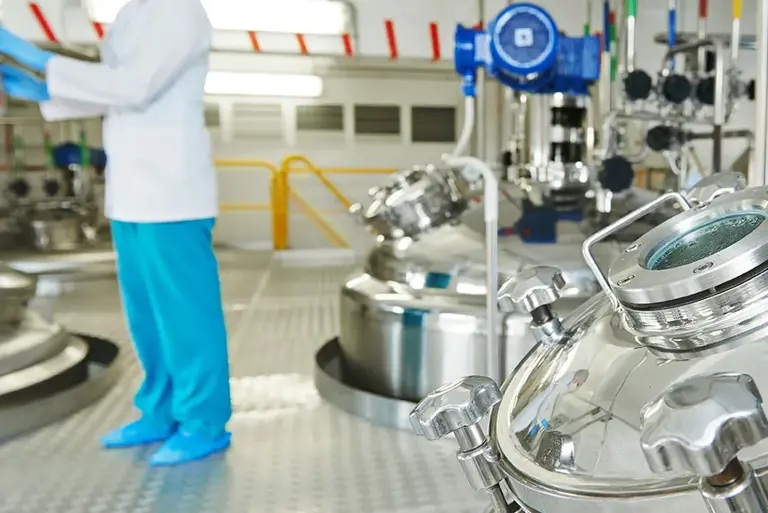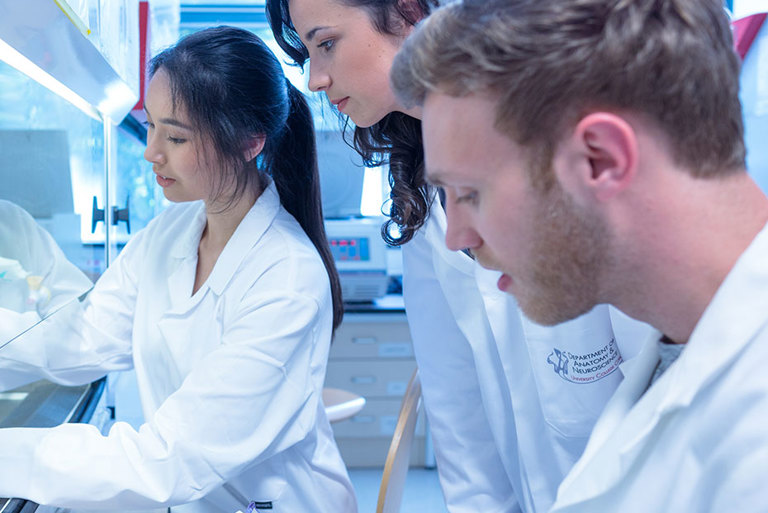Careers in the pharmaceutical industry

The pharmaceutical industry
This is a knowledge driven industry, requiring a highly skilled workforce and directly employs over 73,000 people, with over 23,000 of these in research and development. The pharmaceutical industry also indirectly generates at least 200,000 more jobs making it a substantial employer in the UK, and these figures have stayed relatively stable over recent years. As employees in the pharmaceutical industry add more per head to the UK economy than any other sector, employment in the industry is highly valued.
Increasingly, pharmaceutical companies are investing in research and development, with a trend towards investment in collaborative research with academia. Some pharmaceutical companies even sponsor PhDs in academic institutions to help make this connection, with the hope of finding joint solutions to joint healthcare problems. With this shift in focus towards collaborative research and development there has been a decrease in sales and marketing activity in recent years.
Few companies carry out all of the different functions needed to take a medicine from basic concept to market; instead, functions are often outsourced to specialists such as contract research organisations (CROs), marketing companies or legal firms. There are also a number of stakeholders who have an interest in the industry, such as healthcare providers, research councils and regulators. The pharmaceutical industry also has a strong partnership with government, with the work of the ABPI ensuring that the NHS is offered a fair price for the medicines on offer.
The discovery, development, manufacturing and promotion of new medicines is therefore a team effort combining the talents of many individuals. This means that there are a wide range of jobs available directly within, or relating to, the pharmaceutical industry.
Working in the industry
Andrew Croydon, ABPI Director Education, Examination and Partnership discusses the breath of careers available within the pharmaceutical industry.
I'm Andrew Croydon, Director of Education and Examination Policy and Partnerships at the ABPI. The pharmaceutical industry is groundbreaking in terms of developing and manufacturing medicines and vaccines. Everyone who works in the industry ultimately is doing so to benefit patients. It's vitally important that we consider the future talent pipeline. What are we doing to inspire the next generation of scientists?
So we did a lot of work in terms of careers outreach and STEM education support to make sure that they are making informed career decisions. The actual fact yes we need the scientists to carry on the groundbreaking research. We are an innovation based industry and that will never change but there are job roles across many other functions as well which help the industry continue to work and move forward whether that's legal, whether that's IT, finance and HR and so forth.
The projects that we're running at the moment are to demystify these misconceptions. So for example, roots into the industry. Historically, traditional academic route has been really popular and the majority of people working industry would have come through that route. However, whilst that now remains really important in parallel, there is an equally important vocational route into industry. And so we have people taking the vocational route, taking apprenticeships and gaining their first step on the career ladder that way. We are fully aware that we require a diverse talent pipeline because diversity brings diversity of thought.
So from our perspective, our research has shown that we still need to do work in terms of demonstrating the breadth of individuals that we're looking to recruit into the industry and how valuable they are to the industry. It's a really good industry to get into if you think about the fact that no matter what your job role is, you can be having an impact and bettering the lives of billions of patients around the world.

Why work in the industry?
The UK pharmaceutical industry has a dynamic working environment with the challenges, opportunities and incentives that you'd expect from one of the UK's biggest industries.
Why work in the industryKey career resources

To help you to find employment, work experience and training opportunities in the pharmaceutical industry, we've generated a list of companies, their contact details and some of the areas they often recruit into.

More than 65% of all medical research and development in the UK is carried out by the pharmaceutical industry. Find out more about the various areas of work.

Explore the multitude of different roles within the industry; each person has their own career perspective and advice to share

The ABPI Examination is mandatory for all medical representatives working for companies who have agreed to abide by the ABPI Code of Practice for the Pharmaceutical Industry.
School or overseas routes

Most people know what doctors, nurses, dentists and vets do. But many people are not sure what a research chemist does, or what a pharmacologist is.

The UK may be small, but it is one of the most diverse and dynamic hubs of the global pharmaceutical industry. With over a hundred pharmaceutical companies operating in the UK, you may be tempted to move here to help develop your career.
Graduate and post-graduate routes

In training, you may only have considered being an NHS or private sector physician, as little exposure to industry careers is offered in medical schools. However, your skills, training and medical knowledge are invaluable in the pharmaceutical industry.

If you have completed your PhD and post-doctoral work in an academic institution, making the transition into the pharmaceutical industry can be daunting, but making this transition could have many benefits for your career.

Once you have embarked on a university degree there are still choices to be made. In the UK there’s stiff competition for most jobs, so just having a degree on your CV isn’t enough to make you employable.

A career in the pharmaceutical industry offers great prospects for working abroad.
